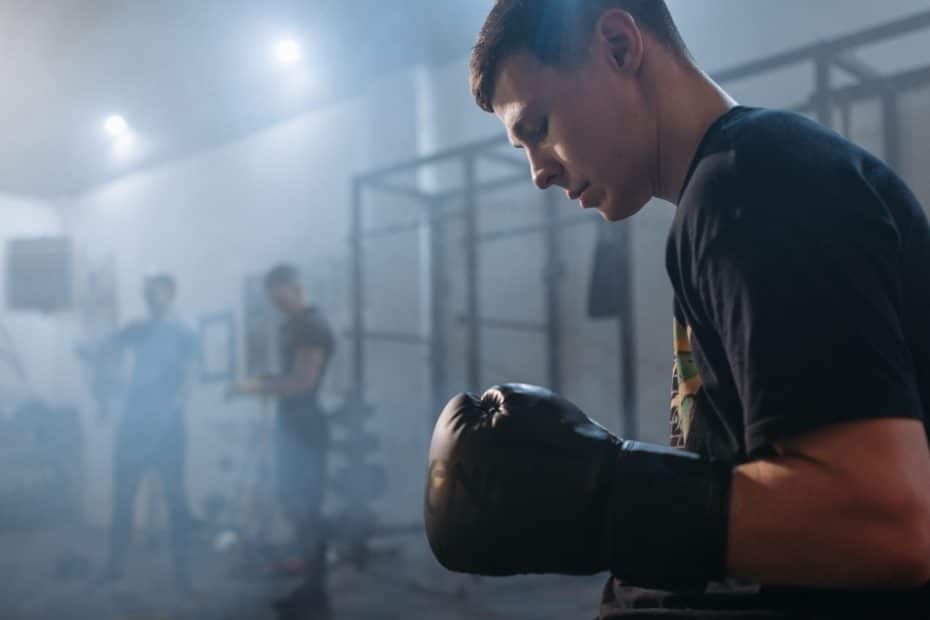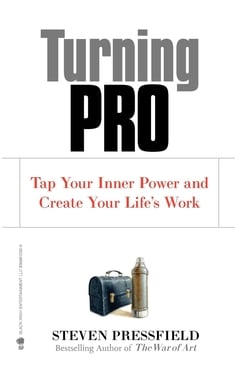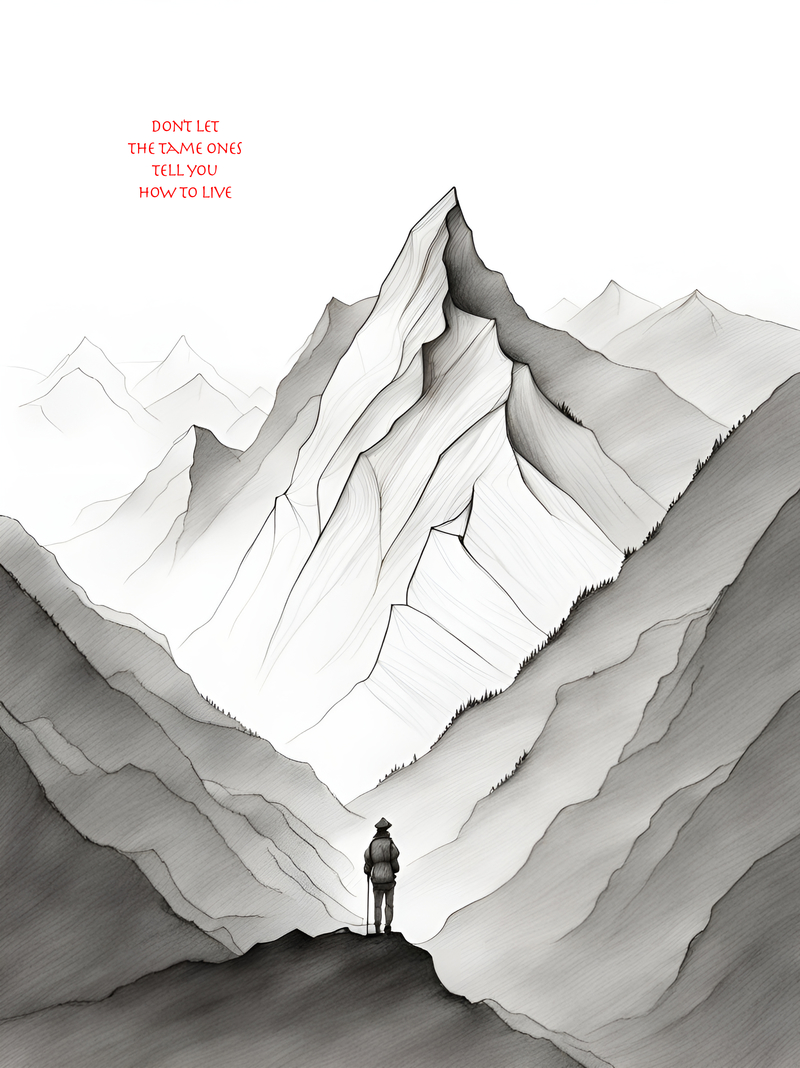Excerpt: Inspired by a thread posted by Sahil Bloom, here are (some of) the main differences between amateurs and professionals. And they’re not small.
Click Here to jump right to our list of differences between amateurs and professionals!
Introduction: Details Matter
In Martial Arts, the direction of your toes—matters. The placement of your hands—matters. The distribution of your weight—matters. Even the height of your shoulders, the tilt of your head, and the squint of your eyes—matters.
Of course, the general coordination of the move matters, too, but it’s precisely the above mentioned details—the fine motor adjustments—that puts the “Art” in “Martial.” It’s the great divide between what makes “okay” and what makes “great.”
What separates an amateur punch from a professional punch isn’t their ability to quickly extend their hand from their face to a target and back—it’s how the details were minded in the process.
As is the case with basketball dribbles, hockey slap-shots, football throws, etc.—details are what separate beginners from masters and amateurs from professionals. Anybody can dribble—few dribble professionally. And the same is true in how things are done in any endeavor.
But, how does one close the gap between amateur and professional? What mindset(s) does the professional have that the amateur doesn’t? What do days in the lives of professionals look like versus amateurs? These are precisely the types of questions Sahil Bloom was seeking to answer in a thread he posted on Twitter.
Below, you’ll find his words. Let’s dive in:
Enter Sahil:
Amateurs make it look effortful, Professionals make it look effortless. You have to put in more effort to make something appear effortless. Professionals know that elegant performances are the result of a large volume of gritty practice. Small things become big things.
Amateurs play the table, Professionals set the table. Professionals play games they are uniquely well-suited to win. If they don’t like the way the table is set, they flip it over. They set the table in a way that favors their edge and then make their opponent play on it.
Amateurs love the prize, Professionals love the process. You’ll never make it if the view at the summit is the only thing motivating you to keep climbing. The hunt has to be just as exciting as the meal at the end. Professionals truly fall in love with the process.
Amateurs blame others, Professionals are accountable. In the wake of a failure: The Amateur looks outward—bad luck, unfair circumstances, a cheating opponent. The Professional looks inward—lack of preparation, gaps in routine, uneven intensity. Accountability breeds progress.
Amateurs fear being wrong, Professionals enjoy it. Professionals have retrained their minds to embrace new information that forces a change in viewpoint. They view each “software update” as an improvement upon the old. Open mindsets rule the world.
Amateurs hope for good breaks, Professionals create them. Amateurs enter the arena with their fingers crossed. Professionals enter the arena with a plan. They realize that some of what we call luck is the macro result of 1,000s of micro actions. Professionals create more luck.
Amateurs are a part of their environment, Professionals are the master of it. It’s important to have a plan—but a plan is useless if the environment is unsuited to following it. Professionals *create* their environment, they don’t just exist in it. They dictate the terms.
Amateurs attribute success to skill and failure to luck, Professionals understand the role of both. The Professional recognizes the role of skill and luck in every outcome. They focus on the controllable factors. They create an environment where luck is more likely to strike.
Amateurs fear incompetence, Professionals own it. When faced with their own incompetence: The Amateur flails wildly in an attempt to distract from the obvious gap. The Professional enlists support to cover the incompetence and repositions the game board to avoid its exposure.
Amateurs enter with 100 mediocre moves, Professionals enter with 1 perfect move. Professionals know their unique edge—they play *their* game. “I fear not the man who has practiced 10,000 kicks once, but I fear the man who has practiced one kick 10,000 times.” – Bruce Lee
Amateurs fear failure, Professionals embrace it. Our greatest moments of growth often stem directly from our greatest failures. Professionals don’t accept failure as inevitable, but they certainly don’t fear it either. Remember: You will fail. Embrace it. Fail smart and fast.
Amateurs are flashy, Professionals are relentless. Many people are able to produce bursts of energy—few are able to produce consistent, steady flows, day-in day-out. The former is flashy, but the latter is relentless. Never bet against the person who just keeps showing up.
Amateurs are patient with actions and impatient with results, Professionals are impatient with actions and patient with results. Professionals play long-term games—they delay gratification. But they simultaneously embrace that long-term games are won through tiny daily actions.
Amateurs act quickly, Professionals act methodically. When faced with a unique challenge: The Amateur leaps into motion, believing that forward motion is progress. The Professional moves slow—pauses, thinks, and acts. Slow down to speed up. Slow is smooth and smooth is fast.
Amateurs press, Professionals wait. When pressure and stress levels elevate: The Amateur is uncomfortable—they press in an effort to fast-forward to the finish. The Professional is comfortable—they observe. The Professional is born in the pressure, built through the stress.
Amateurs seek recognition, Professionals seek legacy. Amateurs do it for the pat on the back—the approval, the words of affirmation, the champagne. Professionals do it for something bigger—they don’t need approval. They’re building something that lasts long after they’re gone.
Amateurs let the day come to them, Professionals have a routine. The greatest performers in any craft share one thing in common: They have a routine and they stick to it. Greatness is simply the result of tiny daily actions done well—over and over and over again.
Amateurs try to be good at everything, Professionals identify their unique edge and exploit it. The Professional is: (1) Self-aware to determine their unique edge. (2) Strategic to set the table to favor that edge. (3) Ruthless to exploit that edge on the table they set.
Those are (some of) the differences between amateurs and professionals.
**End. You can read the thread on Twitter here.
Afterword: A “Professional” Approach Towards Life
**Matt is now talking again.
Attention to detail isn’t just activity specific.
The way you do anything is how you do everything. Attention to detail is a character trait that some choose to develop towards more than just specific activities/sports/arts.
It’s a careful awareness. It’s a trained devotion to excellence. It’s the rigorous loyalty to the minutiae. It’s a deliberate decision to improve—beyond where most people stop. It’s a drive for inches when most people park after miles. It’s not for the faint of heart. It’s not for the preoccupied. It’s not for the careless.
It’s for the people who choose to be passionate, focused, and committed to paying details the attention they require—in any and every chosen task. It’s why attention is paid and not granted.
And it’s why masterpieces are so valuable—because they’ve been paid for in attention, energy, effort—details—many times over. Details that others find too expensive to pay. Details that, bring the big picture to life. Details that, when removed, would leave masterpieces as just pieces.
‘Do what you love’ is for amateurs. ‘Love what you do’ is the mantra for professionals. And if you can learn to love what you do when it comes to each aspect of your life—you’ll get to live the beautifully challenging, yet wildly rewarding life of the professional.
If you enjoyed this post, you should check out Stephen Pressfield’s book, Turning Pro. It comes highly recommended:
Book Overview: Turning pro is free, but it’s not easy. When we turn pro, we give up a life with which we may have become extremely comfortable. We give up a self we have come to identify with and to call our own.
Turning pro is free, but it demands sacrifice. The passage from amateur to professional is often achieved via an internal odyssey whose trials are survived only at great cost, emotionally, psychologically, and spiritually. We pass through a membrane when we turn pro. It’s messy, and it’s scary. We tread in blood when we turn pro. What we get when we turn pro. What we get when we turn pro is we find our power. We find our will and our voice, and we find our self-respect. We become who we always were but had until then been afraid to embrace and live out.
Buy from Amazon! Listen on Audible!
Great on Kindle. Great Experience. Great Value. The Kindle edition of this book comes highly recommended on Amazon.
Read Next:
NEW In The Shop: Don’t Let The Tame Ones Tell You How To Live [Poster]
Why We ♥ It: Some of the best advice I (Matt here) ever got was: don’t take life advice from people who aren’t living a life you want to live and don’t take criticism from people you wouldn’t go to for advice. I created this poster to act as a reminder to listen more closely to our role models and less closely to our critics, trolls, and tamed-comfort-zone-hugger acquaintances. It’s also a perfect gift for the outdoor adventurer, travel enthusiast, or solo explorer (or soon to be). Available in print or digital download. 👇🏼
...Want to advertise your book, product, or service? Send inquiries to matt@movemequotes.com.

Written by Matt Hogan
Founder of MoveMe Quotes. On a mission to help busy people do inner work—for better mental health; for healing; for personal growth. Find me on Twitter / IG / Medium. I also share daily insights here. 🌱
It has taken me 1,000’s of hours to build this free library for you. If it has helped you, you can support my continued effort here. ☕️


![A Short Story About Frida Kahlo And The Unexpected Gifts Pain Can Provide [Excerpt]](https://movemequotes.com/wp-content/uploads/2021/11/Frida-Kahlo.jpeg)

![Where Do Ideas Come From? [Excerpt]](https://movemequotes.com/wp-content/uploads/2021/04/IMG_1179.jpg)


